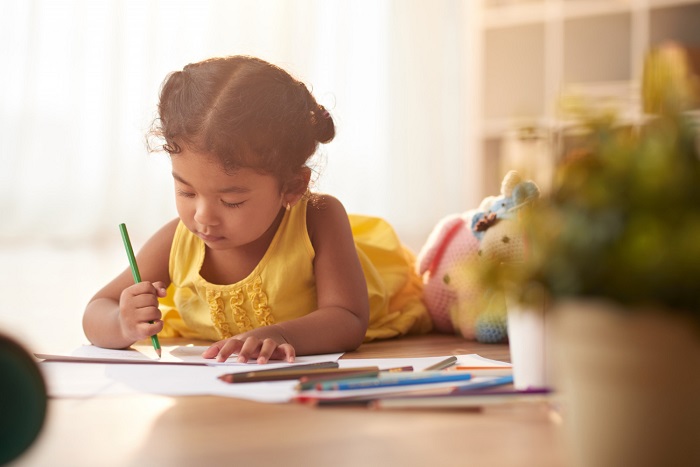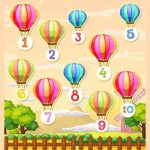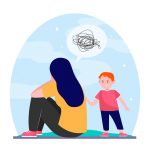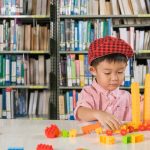Activities for Pre-Primary Students
Every parent dreads the first day they send their child to school. As they find themselves walking away after they have dropped them off, they are beset with a strange feeling. As though a second umbilical cord has been severed between them and their child.
While school is a necessary part of our children’s lives, we must first ask ourselves, ‘Is my child school-ready yet?’
Read on to learn what school readiness is, and all the things you can do to help your child achieve it. This includes a list of pre-primary activities that will help your little one ease their way comfortably into ‘The School Experience.’
What School Readiness means
In a nutshell, school readiness refers to whether a child is ready to benefit from formal education in a group context.
A school-ready child is one who has learned the necessary skills to be able to cope and thrive in their first grade in school.
Just so you know, the first grade is the first ‘formal’ year of schooling. All years leading up to this grade are considered informal schooling years.
Activities for Pre-Primary Students: Part One – Parents
School readiness is not something children are blessed with at birth. Rather, it’s an accumulation of the skills a child has picked up since birth.
Here’s a look at the things parents can do, to get their children school-ready.
Learning through Play
You heard that right. Good old-fashioned play is best for your child’s overall development. When looking to prepare some activities relevant to school readiness of children, keep this one at the top of the list.
To do: It’s important that your child has opportunities to indulge in all kinds of play. It could be as simple as taking out different materials for your child to play with, or playing a game to work on a specific skill.
The Reason: Everything your child needs to do in school, relies on the basic skills that free play homes. For example, something as simple as holding a pencil and writing, requires sharp gross motor, fine motor and visual perceptual skills.
Social Interaction
Going to school necessitates your little one spending time with, and getting along with, other children.
To do: Create plenty of opportunities for your kids to interact with other children through play dates and playgroups.
Tip: Play board games with your children. This will teach them things like sharing, waiting their turn and even how to cope when they lose.
Harness the power of Language
Who says Language Learning needs to be confined to the classroom?
To do: Transport your children to another world by reading to them every day. This will also help them develop those vital language concepts.
Tip: When reading, ask your child to name different pictures, to expand their vocabulary.
Emotional Development
Probably the best bit of advice on this pre-primary activities list, especially in these times of increased stress.
To do: You want to talk about feelings with your child, making it a point to verbalize when you see emotions in different people.
Tip: You might wish to sing songs about emotions, like ‘If you’re happy and you know it.’
Work on Physical Skills
Lastly, schools play a vital role in promoting physical fitness through activities for pre-primary students that work on their physical skills.
To do: Get your children to swim, or perhaps indulge in fun ‘animal walks’ at home.
Tip: You could even throw bean bags to them, to develop their strength and endurance.
Activities for Pre-Primary Students: Part Two – Teachers
Teachers have no less a job to do than parents, when it comes to getting kids school-ready.
Games and Play
Once again, play makes its way to the top of the list of activities for pre-primary students. In that regard, here’s some games/activities teachers could do with kids.
- Parts of the Body Game. The teacher yells out different body parts that kids have to touch: like ears, nose, etc.
- Collect the Objects. The teacher says something to the tune of, ‘Collect five pencils.’ The child has to duly do the same.
- Fun with Clay. Playing with clay is a most fun, learning-oriented activity.
Nature Walk
Children are best prepared for the years to come, when they learn to see and observe new things.
Teachers can organize nature walks for children, where they must be told to observe the things around them. Things like animals, birds and trees. Then, the teacher must ask them related questions, like ‘Did anyone see a beautiful bird?’, or ‘Is it a sunny or rainy day?’
Free Talk
Children gain confidence when they learn to speak in front of other kids. Further, it makes them more comfortable with their teachers and fellow classmates.
Teachers might want to set in place a 15-minute session each day, where one child will talk about their life. They could speak about their family or friends, or even their hobbies and animals they love.
Learning about Concepts
The sound learning of concepts is something that will hold children in good stead, in their formal schooling years. There are several concepts teachers can teach kids, such as the following.
- Long and Short. Kids are shown two pencils, and have to decide which is long and which is short.
- Number Counting. Counting things like marbles and pencils.
- Shapes. Shown differently-shaped objects, they must identify things as being ‘a square’, ‘a circle’, etc.
Singing Rhymes, Poems, Prayers
Literacy skills of children are nurtured well through the recitation of nursery rhymes, prayers and poems, too.
Teachers could have kids sing along to the audio of the national anthem, or get them to recite poems with accompanying actions.
You can rest assured that the environment at EuroKids is extremely conducive to getting your kids more than ready for their formal schooling years. There is ample research to indicate that children who start school when developmentally ready to learn, tend to do better in school. All the more reason, to do everything at your end too, to get your children school-ready.















